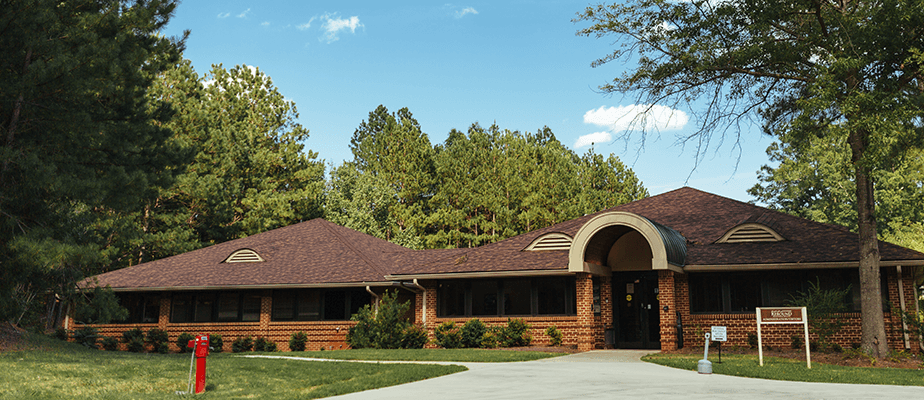Rebound Behavioral Health Hospital helps adults struggling with opiate addiction build a strong foundation for long-term recovery. Serving South Carolina, Rebound is a trusted provider of substance abuse rehab.
About Opiate Addiction
Learn More About Opiate Addiction Treatment at Rebound Behavioral Health
Opiates are highly-addictive narcotic medications such as OxyContin and Vicodin that are prescribed to people who suffer from pain-related disorders. While most people don’t go to the doctor and obtain a prescription for prescription painkillers with the intention of becoming an addict, addiction to opiates, including heroin (an illegal opiate), is becoming a widely growing problem in the United States and worldwide. If you’ve become addicted to opiates, you were probably drawn to the pleasurable, euphoric sensations these drugs cause. You may find that you’re using more of your painkillers than your doctor prescribed at higher doses than intended to achieve these pleasurable feelings. When your prescription runs out, you may turn to illegal ways of obtaining opiates – ordering pills off the internet, buying them from a dealer, forging prescriptions, and doctor shopping, or visiting multiple doctors to obtain prescriptions for painkillers. You may have even begun to use heroin to achieve the desired high. If you’ve become addicted to opiates, you probably feel your life now revolves around obtaining, using, and recovering from the effects of opiates, leaving little else in your life. You may feel hopeless and trapped, as if there’s no way out. Our leading opiate addiction treatment center is here to help.
As the leading opiate rehab center Lancaster, we’ve helped countless people just like you successfully get clean and learn to lead a life of sobriety. We use a recovery-based strengths-model for our addiction program that can help you on your recovery journey and allow you to build the future you’ve always wanted and approach life a happy, productive, and sober member of society.
How to Help a Loved One
Helping a Loved One Get Treatment for Opiate Addiction
If you’ve been watching your loved one spiral downward into addiction to prescription opiates, you’re probably feeling a normal range of emotions – disgust, shame, horror, and fear. You know that your loved one needs your help to get clean and seek care at an opiate treatment center, but you may not know how to approach the situation, and if you should even bother trying. Maybe you’ve helped your loved one into rehab before only to have them go back to the pills. You live your days in fear of what the next phone call will bring. It’s time to act – but how? Here are some tips for guiding your loved one into treatment for opiate addiction:
Learn about opiate addiction: Opiate addiction is a very complex disease and the more you understand about it, the better you can help your loved one. Attend a N.A. meeting so that you can see what life as an addict looks like, and attend a local Nar-Anon meeting in your community so that you can gain better clarity about addiction from a loved one’s point of view.
Research rehabs: There are many different types of opiate addiction treatment centers. Look for one that uses humane detox and approaches addiction treatment based around the 12-step model, as the 12-step addiction recovery approach has proven to be successful for many.
Approach your loved one: It’s important that you make your concerns known and try to understand things from their point of view. Remind them of all the things that recovery can hold for them; a job, increased socialization, and love. If your loved one initially resists seeking rehab at a treatment center, let them know that the offer stands and that you’ll love them no matter what.
Why Consider Treatment
Why Consider Inpatient Treatment for Opiate Addiction at Rebound Behavioral Health
If you’re struggling with an addiction to opiates, you may have begun to realize the things that your addiction has cost you: your health, your wellbeing, and your relationships. You may notice that your life has slowly been taken over by opiates and you’re unable to do much beyond look for your next fix. You know if you quit the pills, you’ll be in agony, and this cycle of abuse keeps you coming back for more. There’s a better way, you just don’t know how to find it.
An inpatient program that specializes in addiction treatment and recovery based around the 12-step model for addiction has been proved to be one of the best ways to get clean and maintain sobriety. An inpatient program allows you to escape the pressures of everyday life and focus on the one thing that matters most – getting well. Through a variety of therapeutic approaches, you’ll learn how to manage triggers, handle stress, and continue a life of sobriety.
Our Rehab Philosophy
Rebound Behavioral Health’s Rehab Philosophy
As one of the top opioid treatment center in South Carolina we’ve had tremendous experience helping troubled addicts get clean and learn the life skills needed to maintain their sobriety. Our compassionate multidisciplinary treatment team has helped countless people and are ready to help you learn to live a sober life. We approach addiction recovery from a unique, strengths-based perspective, believing that each client we treat brings tremendous strengths with them that can be built upon during treatment. Each client plays an active role in their own recovery and is consulted with for every step of the treatment planning process. At Rebound, we set you up for success.
Treatment Methods
Types of Opiate Addiction Treatment Offered at Rebound Behavioral Health
When you first come to us for care for your opiate addiction, we’ll have you undergo a variety of examinations to allow us to best approach your care. The medical examination will determine if you’re suffering any medical consequences of your opiate addiction as well as determine if there are any other drugs in your system. Our psychiatric evaluations will allow us to diagnose and begin treatment for any co-occurring, dual-diagnosis mental health conditions. We’ll take the results of these evaluations and work with you to create a plan of care for your stay with us.
Detox may be the first step during the rehab process at our treatment center if you require detox from opiates. Through detox, we’ll safely and effectively rid your system of any drugs or alcohol you may have become dependent upon. Detox is medically-monitored and delivered in the most humane way possible, to ensure your safety and comfort during this time.
Medications may be used during detox to help with any unpleasant withdrawal symptoms and may be tapered down as you develop more coping mechanisms. Other people may need long term medication management to address co-occurring, dual-diagnosis mental health conditions. Medication will be consistently monitored and adjusted as needed.
Individual therapy is provided at least once per week and more as you need it. During individual therapy, you’ll work with a therapist trained in a number of approaches, including cognitive-behavioral therapy. These sessions will allow you to express the problems your addiction has caused in your life as well as determine possible solutions.
Group therapy is one of the most vital parts of addiction recovery and is held multiple times a day. Through 12-step, process-based, and psychoeducational groups, you’ll have the chance to bond with and work alongside other people struggling with addiction.
Family therapy is very important for recovering addicts as it allows you the chance to work together to mend any broken bonds caused by addiction. We’ll allow time to educate your loved ones about addiction, let them express ways that addiction has impacted their lives, and provide any referrals for community resources such as Nar-Anon to allow for their healing.
As one of the lead holistic treatment centers around South Carolina, Rebound Behavioral Health is proud to offer a variety of experiential therapies to complement traditional therapeutic techniques. These include:
- Massage therapy
- Exercise therapy
- Activity therapy
- Relaxation therapy
- Music therapy
- Pet therapy
- Spiritual counseling
- A.A. and N.A. groups
Discharge & Continuing Care
Maintaining your Recovery from Opiate Addiction
Once it has been established that you no longer need inpatient care, an individualized discharge plan will be created by you and your treatment team. Depending on your needs, you may join our outpatient treatment. If you and your treatment team believe that you have made enough progress to return home in, you will be given a list of referrals for traditional outpatient therapies available in your community, as well as an A.A. or N.A. group.


















